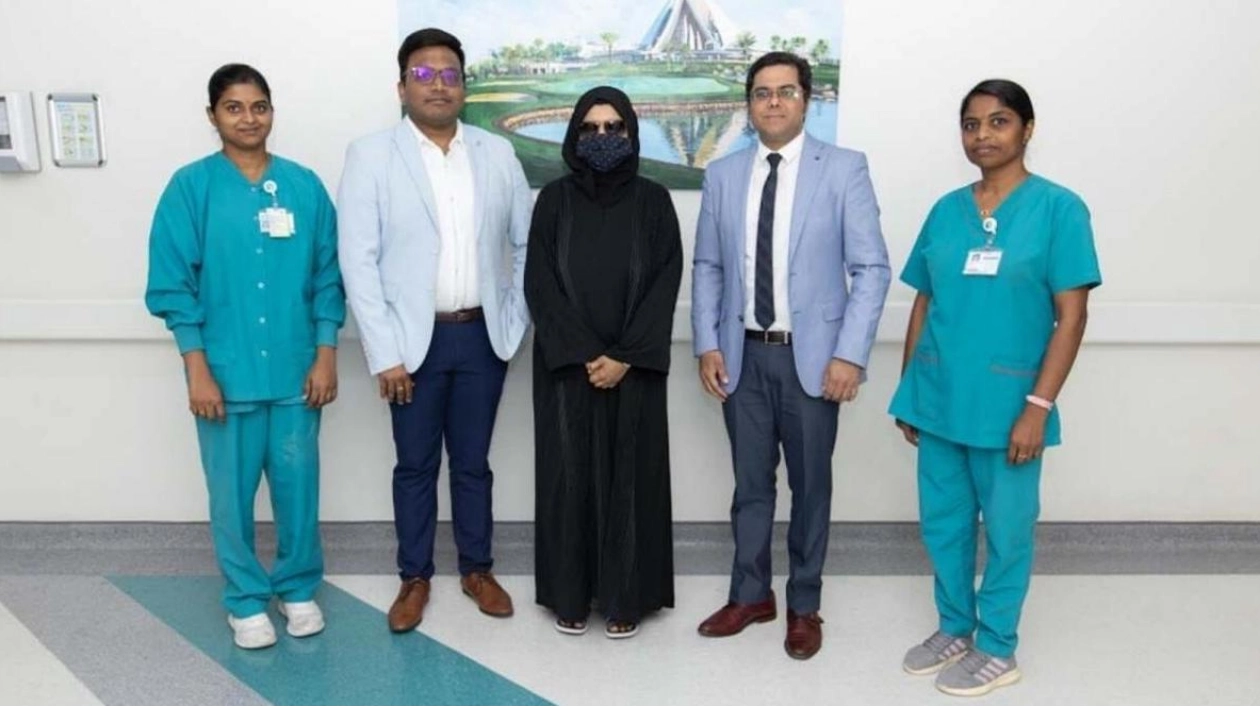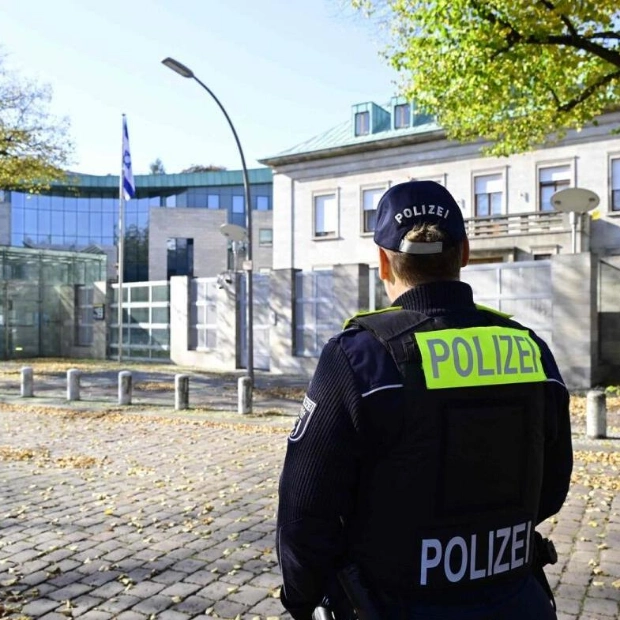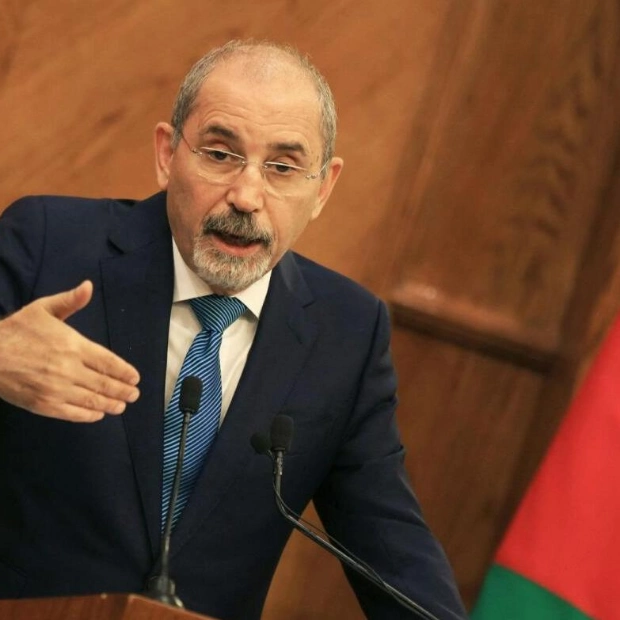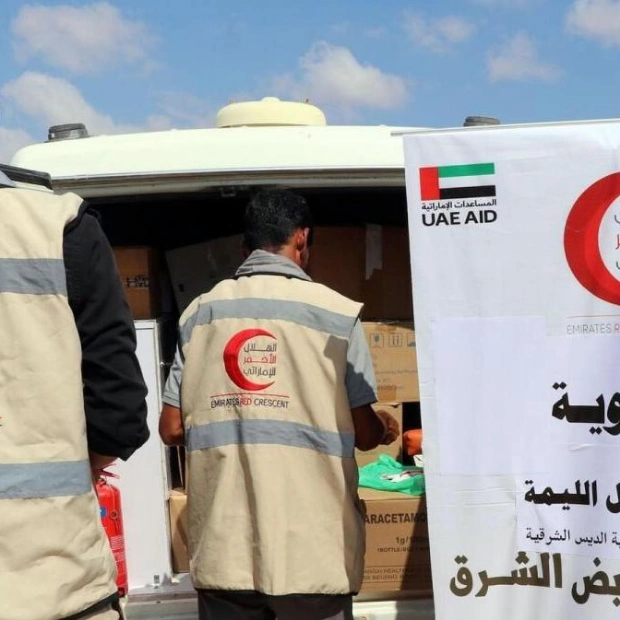After consuming just a few spoonfuls of food, Salma Sheikh, aged 41, felt uncomfortably full. She struggled to complete her meals and experienced early satiety, a condition accompanied by persistent abdominal pain that had lasted for nine months. Upon consulting a physician last month, she was diagnosed with Stage 3 ovarian cancer. Salma's symptoms included a diminished appetite, lower abdominal pain, abdominal distension, and weakness, which also caused her considerable anxiety (her name has been changed for this narrative). Initial scans revealed a large mass in both her ovaries, leading Dr. Keerthi Banavara Ravi, a consultant in Surgical Oncology at Zulekha Hospital Dubai, to order further medical examinations. Dr. Keerthi identified moderate ascites and significant pelvic masses, confirming the diagnosis of primary bilateral ovarian cancer with spread to the upper abdomen. Salma underwent a diagnostic laparoscopy, a procedure using a small surgical video camera to assess the disease's extent within her abdomen. The procedure uncovered extensive abdominal involvement and a critical condition where cancer cells or tumors exceeded 25 mm in size. A subsequent biopsy confirmed high-grade cancer tissues in her ovaries.
Given the advanced nature of her Stage 3 ovarian cancer, an aggressive and immediate treatment plan was formulated. This plan included preoperative chemotherapy followed by surgical removal of the tumor and hyperthermic intraperitoneal chemotherapy (HIPEC). The heated chemotherapy was directly applied inside her abdomen to eradicate any remaining cancerous cells. Dr. Bharadwaj Ponnada, a medical oncologist at Zulekha Hospital Dubai, administered four cycles of neoadjuvant intravenous chemotherapy, which notably reduced Salma's ascites and improved her overall condition and appetite. Salma then underwent a 15-hour supra-major surgery, during which Dr. Keerthi and his team meticulously removed all visible cancer from her abdomen, including her ovaries, uterus, fallopian tubes, pelvic peritoneum, rectum, and all peritoneal and omental tissue in the upper abdomen and sub-diaphragmatic regions. Following the surgical removal of the visible tumors, heated chemotherapy was applied directly inside her abdomen to eliminate any remaining cancerous cells. This procedure, lasting approximately 90 minutes, involved bathing the entire peritoneal cavity with heated chemotherapy at 42°C to eradicate any residual microscopic cancer cells.
Khaleej Times reports that Salma is now making a remarkable recovery. She has returned to a normal diet and is engaging in everyday activities. She has successfully completed two additional cycles of chemotherapy post-surgery, which she has tolerated well. Doctors note that given the advanced stage of the cancer at diagnosis, there is a 40% chance of recurrence, which can be mitigated through ongoing chemotherapy and targeted therapy. The exact cause of Salma's cancer remains multifactorial, potentially involving family history and hormonal imbalances. A genetic assay is currently underway to provide further insights. Dr. Keerthi emphasized the importance of early detection of ovarian cancers, which significantly reduces the extent of surgery and treatment-related morbidity, leading to better outcomes. Regular ultrasounds and CA 125 measurements are crucial, especially for individuals with a strong family history of ovarian cancers. Abnormal ultrasound findings should always be investigated. He also assured that advanced ovarian cancers can be effectively treated with the latest modalities such as cytoreductive surgery and HIPEC, allowing patients to lead normal lives post-treatment. The expertise, team spirit, and experience of the surgical and medical oncology teams are critical in managing advanced cancers successfully.






